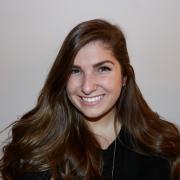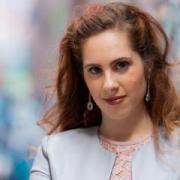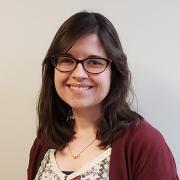2019 Theme: Design for Difference
As designers, we are responsible for creating worlds of experiences, environments, services, and systems that impact millions of people – with lasting impacts. While we don’t have a Hippocratic Oath, it’s important for us to follow a similar goal to “do good” and “do not harm.” It is our responsibility as IAs to consider the consequences and impact our design decisions have on humanity and society as a whole.
Research is a foundational step in the design process. It ensures that we understand and account for diverse user needs within communities, both in our own domains and globally.
So, what differences are we designing for?
-
Difference in ability and disability
-
Difference in access to information and technology
-
Difference in language and cultural understanding
-
Difference in age, gender, and identity
-
Difference in experience
There is no average user. There is no norm.
“Different is the new normal we should be designing for.”
Inclusive design strategist Elise Roy at the 2018 IA Summit in Chicago.
How do we as information architects and designers design for this difference? What is this difference that we’re designing for? How can we better understand it and become more engaged and mindful for our different and diverse users? How might we communicate this understanding to others and provide more meaning and depth?
We build worlds. Let’s do it responsibly.
WIAD Ann Arbor will be held Saturday, February 23, 2019, from 9:30 a.m. until 1:45 p.m. at the downtown branch of the Ann Arbor District Library.
Venue, parking and transit
Ann Arbor District Downtown Library
343 South 5th Avenue
Ann Arbor, MI 48104
Parking & Transit
The Downtown Library is located directly across the street from the Blake Transit Center. Find buses to Downtown here, or see The Ride.
Several options are available for Downtown parking, operated by the Ann Arbor Downtown Development Authority. There is metered street parking available on 5th Avenue, William Street, and Library Lane; a pay parking lot at the corner of 5th Ave. and William St.; and the four-level, underground Library Lane parking structure is located between 5th Avenue and Division St.
Program/Schedule
Registration & Networking
Introductions & Kick-off
Deque Systems' Accessibility Empathy Lab
People with disabilities experience technology in ways that many people without those disabilities can't even imagine. The Deque Empathy Lab is an immersive accessibility learning experience that showcases how people with disabilities use technology. At the Empathy Lab, you’ll gain a whole new perspective by interacting with real assistive tools and learning how different disabilities can impact how we experience technology.
Speaker 1: Nisreen Salka
Data Transparency: Revealing the Invisible
Much like a television show or Broadway musical, much of the magic of software happens behind the scenes. Complex algorithms determine what posts we see on our social media feeds, what music we listen to on streaming platforms, and even which items we purchase online. As user experience professionals, we have a responsibility to reveal those invisible strings to our users, operating with transparency and honesty. The question is, how?
Speaker 2: Mike Osswald
Empathy First: Mindset, Techniques, Tools
We’re all experiencing growing pressure to deliver experiences with less time and budget, but we must not forget our core purpose: we help people interact successfully with businesses, products, and services. It’s time to make sure we focus on Empathy First: ensuring we understand people’s situations, needs and knowledge, before we jump into solutions. This is especially true as we look to create more inclusive and accessible experiences. I’m going to present my thoughts on prioritizing empathetic human-centered activities and deliverables – focus on interviewing with less bias, telling user stories to our clients and team with more meaning, making sure our cross-functional teams never lose track of the “why” when defining and building the “what” from beginning to end.
Break & Networking
Lightning Talks
- Jane Vincent: "Trysting, Wasabi, and the History of Universal Design"
- Ambika Vohra: "Designing for Differences We Cannot See"
- Mirabella Olszewski: "'Tidying up' IA
- Lucy Lee & Lissy Torres: "Opening Doors: How to Avoid the UX-pert Trap"
Lunch
Keynote Speaker: MacKenzie DeWitt
Embracing Difference to Deliver More Thoughtful, Flexible Experiences
How can we understand, communicate, and design for difference across a variety of stakeholders, contexts, and goals? Drawing on my experience leading the UX work on a project to redesign 22 healthcare system websites using a single design approach, I will show how we can embrace difference to deliver flexible, user-centered, forward-thinking design solutions. I will offer tactical recommendations about how to approach difference, manage various stakeholders, and strike a critical balance of uniqueness and standardization in our design strategies.
Closing Remarks
Local Partners and Sponsors

ProQuest
Better research. Better learning. Better insights. ProQuest enables people to change their world.

Deque Systems
Deque Systems provides web and mobile accessibility solutions so you can meet compliance goals and help make the web accessible to all users.
FordLabs
FordLabs is a software incubation group within Ford Motor Company, whose mission is to develop innovative software through human centered design, lean validation, and XP development.

Atomic Object
Atomic Object creates applications for web, mobile, desktop, and devices. We help companies innovate and grow with custom software products that are beautiful, reliable, and easy to use. Offices in Grand Rapids and Ann Arbor.
University of Michigan School of Information (UMSI)
The University of Michigan School of Information creates and shares knowledge so that people will use information – with technology – to build a better world.
The Understanding Group
The Understanding Group helps you create a better user experience for your websites with information architecture.














